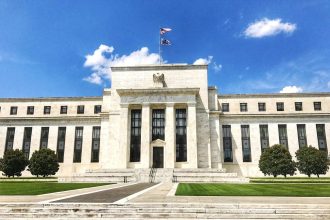OBSERVATIONS FROM THE FINTECH SNARK TANK
JPMorgan Chase notified fintech data aggregators that, starting later this year, it plans to charge for access to customer data. Not surprisingly, the responses from the fintech community has been negative and, unfortunately, often overstated or flat out wrong. No amount of belly aching will change the fact, though, that the bank has a right–and is right–to charge for data access.
The Fintech Overreaction
Phil Goldfeder, CEO of the American Fintech Council, said Chase’s announcement will “harm the very families a safe financial system is meant to serve.”
Penny Lee, the Financial Technology Association’s CEO added: “This action is designed to crush competition, hold back American innovation, and lock consumers into bank-only products.”
Lee is spot on regarding her first point and partially correct on the third:
- In our economic system–like it or not–companies have every right, and in fact, duty, to crush their competition. Truth is, Plaid, who will be adversely impacted by Chase’s fees, does a great job of crushing its competition.
- Chase is trying to lock-in customers–to its products. The bank couldn’t care less about helping out other banks.
- The “hold back innovation” accusation is off the mark. In fact, its Chase’s innovations–APIs–that the bank is trying to protect.
Other commenters have been equally off-base. One well-known fintech influencer commented on LinkedIn, “So in essence, as consumers, we would end up paying to get access to our own data?” No. You won’t pay to access your data.
Jonathan Awad, CEO of fintech Baselayer, posted on LinkedIn, “The same group fintech is supposedly ‘financially including’ will be the first to get ignored.” Not true–they’re Chase customers–so they’re already included. The fintechs who serve those customers can’t afford to “ignore” them.
What the Chase Announcement Is Really All About
Chase’s decision to charge fintechs isn’t a data rights issues, it won’t hold back American innovation, and it isn’t going to harm families the financial system is meant to serve. It’s about two things:
- Infrastructure–and the cost of building and maintaining it. Yes, customers own their data. Yes, they can choose to share it. But sharing data doesn’t free access to the enterprise-grade plumbing that makes it usable. APIs don’t run on vibes. They run on security audits, uptime SLAs, redundancy frameworks, and engineering talent. That stuff costs money.
- Economics and competition. There is nothing that Jamie Dimon, CEO of JPMorgan Chase, has done here that the CEOs of Plaid and MX wouldn’t do if they were the CEO of Chase. The bank isn’t charging customers to access their own data. They’re charging fintechs who use that access to build paid services. That’s called a business model. If a fintech can’t survive with API access fees baked in, the problem isn’t the bank—it’s it fintech’s margins.
Speaking of margins, FinanceCharts says Plaid’s 5-year average gross margin is 72%. As Jeff Bezos would say, “your margin is my opportunity” and that’s exactly what Dimon is going after.
Prediction: Aggregators will negotiate with Chase and offer to provide data back in exchange for lower or no costs.
Either way, a brilliant move by Chase.
The CFPB Says It Was OK To Charge Fees
Chase’s announcement comes after the CFPB’s November 2024 rule to implement Section 1033 of the Consumer Financial Protection Act of 2010. Hailed by many in the banking industry as bringing “open banking” to the US, the rule mandates that banks provide consumers with access to their personal financial data upon request.
The rule mandated that banks must make data available to consumers and their authorized third parties without charging the consumer a fee. Banks can charge fees to third parties (like fintechs or aggregators) as long as the fees are: 1) reasonable; 2) not used to undermine access; and 3) not discriminatory or anticompetitive.
Assuming Chase does implement fees (a good assumption, as reportedly they’re already talking to the data aggregators about them), then the next battle will be about the “reasonability” of the fees.
Prediction: This will be a multi-year battle, recalling the battle over interchange where the government established estimates for what it cost banks to provide card transactions.
If this battle comes up during the Trump administration, don’t expect a similar result. With billions and billions of annual technology spend, Chase–and other big banks–will establish that the costs to manage, protect, and securely share data are quite high.
The “Open Banking” Problem
At the heart of this discussion on fees for data sharing is the future of open banking. The fintech and financial data industries are bemoaning the “death” of open banking under the Trump-era CFPB.
In his LinkedIn post, Baselayer CEO Awad commented, “JPMorganChase wants to charge for open banking data now.”
Open banking data? What is “open banking data”? Better yet, what is open banking? The answer depends on who you are. The contradictions tend to focus on:
- Bank vs fintech. Banks frame open banking as internal data aggregation, while fintechs emphasize data export to third parties.
- Voluntary vs mandated. Industry players treat it as a competitively-driven market shift, whereas CFPB treats it as consumer rights-enabling regulation.
- Breadth of scope. Consumers and privacy advocates view it as more than API access—it’s about data portability and governance, a broader definition than purely financial apps.
As a result, the term “open banking” has become nearly meaningless.
And proponents of open banking—whatever it might be—who believe that “consumers want it” should check a Q4 2023 Axway survey which found that only 55% of Americans have heard of open banking, and just 32% say they understand it.
Read the full article here














